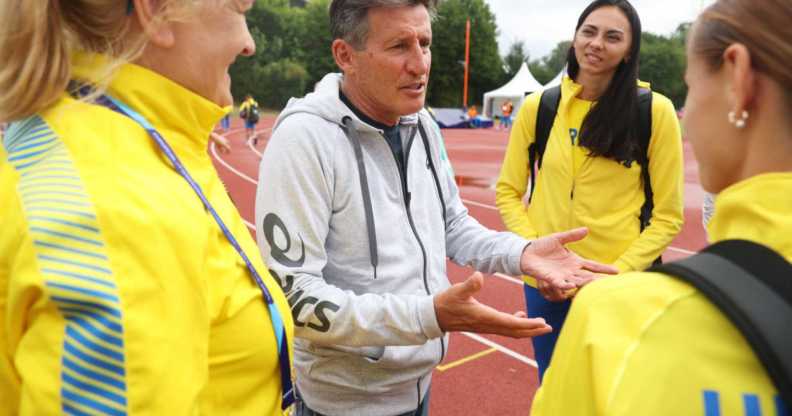World Athletics bans trans women from female events

World Athletics president Seb Coe has announced a ban on trans athletes. (Getty)
World Athletics president Seb Coe has announced a ban on trans athletes. (Getty)
World Athletics will ban trans women who have been through puberty from female competitions.
The governing body’s president, Sebastian Coe, said on Thursday afternoon (23 March) that “transgender athletes should not be competing in the female category”.
Coe stated at a press conference in Monaco that trans women who transitioned after puberty “will not be allowed to participate in women’s events” from 31 March – Transgender Day of Visibility.
Current rules allow trans women to compete if their testosterone level is sufficiently suppressed.
However, Coe said: “Where the science is insufficient to justify maintaining testosterone suppression for transgender athletes, the council agreed it must be guided by our overarching principle, which is to protect the female category.
“We cannot in all conscience leave our transgender regulations as they were at five nanomoles per litre for at least one year when we were unsure about the impact of doing so across all our disciplines. So we need to know more and we need to know more now.”
The decision to exclude trans women came after a consultation which included 40 member federations, athletes and trans organisations.
Coe said: “The majority of those consulted stated that transgender athletes should not be competing in the female category.
“Many believe there is insufficient evidence that trans women do not retain advantage over biological women, and want more evidence that any physical advantages have been ameliorated before they are willing to consider an option for inclusion into the female category.”
He added that in order to conduct further research into its transgender eligibility guidelines, World Athletics will establish a working groups which will aim to “consult specifically with transgender athletes to seek views on competing in athletics” and to “review and maybe commission” additional research.
The working group will be comprised of an independent chair, “up to three council members”, two athletes from the Athletes Commission, a transgender athlete from athletics, three representatives of non-member federations and representatives of the World Athletics Health and Science Department.
Alongside a ban on trans athletes, athletes deemed to have a so-called difference of sexual development (DSD) – will have their testosterone threshold reduced to 2.5 nanomoles per litre. The runner Caster Semenya has historically been excluded under DSD rules.
‘Exclusionary and discriminatory’
Inclusion of trans athletes in sport has been the source of much debate and moral hysteria in recent months, with many states in the US taking steps to ban trans people, including children, from taking part in sports.
Reaction to the news was swift on social media, with one user saying they “don’t want to see any pride-washing from World Athletics” after excluding trans athletes.
Another Twitter user described the move as “exclusionary and discriminatory policy based on artificial frenzy”.
Football v Transphobia campaign lead Natalie Washington said: “The real story with World Athletics is the switch to 2.5nmol/L for athletes with sex variances.
“It’s a scandal. The trans ban affects no-one at present. The athletes with sex variances ban could affect hundreds, thousands of women.”
In 2022 the International Olympics Committee dropped blanket rules on trans athletes, saying that after extensive research it no longer deemed testosterone levels the most important factor in determining whether trans women should be allowed to compete.
However, in dropping its own policy, the IOC encouraged individual sports to set their own rules. As a result, some have introduced strict rules effectively banning trans women, such as swimming body FINA.

